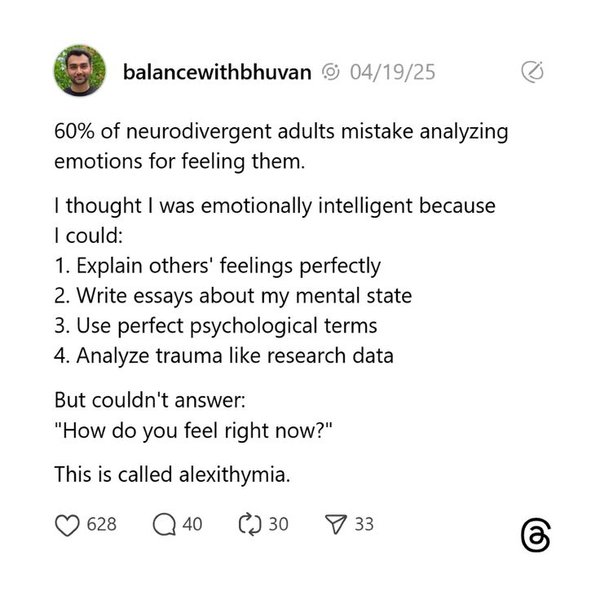menty b
my anti-burnout guide
open.substack.com
We might ‘dissociate’ and do the opposite: we check out, numb ourselves, engage in escapism, or fixate harder on connecting with others. In a state of dissociation, it is hard to advocate for our needs, our boundaries, and our limits. In addition, many of us have excellent auto-pilot functions and masking skills for when we dissociate, which can... See more
The Radical Guide to Being Your Own Primary Partner | Radical Relating

Ontdek recepten, ideeën voor thuis, stijlinspiratie en andere ideeën om uit te proberen.
pinterest.comalexithymia
why we get in our own way (the neuroscience of self-sabotage)
open.substack.com
“I know most people try hard
to do good and find out too late
they should have tried softer.”
― Andrea Gibson
to do good and find out too late
they should have tried softer.”
― Andrea Gibson
- YouTube
Hannah
pin.it
Nervous System Check by Nastia la vista
assets.stanwith.meboopyshmurda on TikTok
vm.tiktok.com
I’ve been struggling myself with autistic burnout recently, so I wanted to share some telltale signs you might be approaching or are in an autistic burnout and need to take a step back ✨
⭐️ sensitivity to sensory input - things may seem louder, brighter or more overwhelming than usual
⭐️... See more
instagram.com







